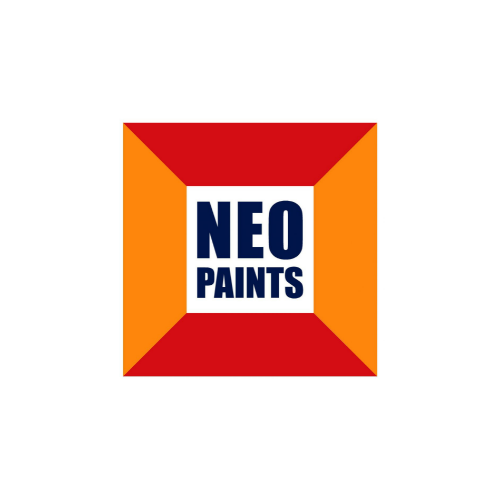The manufacturing sector is projected to grow by 3.8% in 2024 and 3.4% in 2025. Growth in this sector is to be driven by expected improvements in beverages, leather and related product subsectors.
Namibia’s manufacturing sector is constrained by a small domestic market and is also vulnerable to negative impacts from the primary industries. The industry is mainly concentrated in Windhoek’s Northern, Southern, Prosperita and Lafrenz industrial areas. Beverages, grain and other food products, meat and fish processing, textiles and clothing, packaging and plastics, cosmetics, cleaning materials and pharmaceutical products are among the most important subsectors. There are also light industrial areas in Swakopmund and Walvis Bay.
Despite its small domestic market, Namibia’s access to markets in the Southern African Development Community (SADC) with a population of over 330 million people creates opportunities for the export of locally manufactured products. The country’s strategic location on Africa’s southwestern coastline is complemented by an excellent road infrastructure which is linked to its neighbouring countries by four transport corridors. The Trans-Oranje Corridor links the port of Walvis Bay to the Northern Cape in South Africa, while the Trans-Kalahari Corridor links the port of Walvis Bay to Botswana and South Africa. The Walvis Bay- Ndola-Lubumbashi Development Corridor provides a link from Walvis Bay to Zambia, Zimbabwe and the Democratic Republic of Congo, while the Trans-Cunene Corridor provides access from Walvis Bay to Oshikango in northern Namibia and southern Angola.
To encourage the development of domestic beneficiation, the Namibian cabinet announced in June 2023 the prohibition of the export of certain critical minerals such as unprocessed crushed lithium ore, cobalt, manganese, graphite and rare earth minerals.
DUNDEE PRECIOUS METALS SALE
Dundee Precious Metals (DPM) announced in March 2024 that it had sold its Tsumeb smelter to a subsidiary of the Chinese Sinomine Resource Group for US$49 million (N$910 million), subject to obtaining the required approvals. The company acquired the smelter in 2010 to secure a processing outlet for the complex concentrate produced by its Chelopech mine in Bulgaria, but with developments in the global smelting market and changes in the quality of the Chelopech concentrate, DPM can place its Chelopech concentrate at several other third-party facilities. The company said the sale was consistent with its strategic objective of focusing on its gold mining assets and simplifying its portfolio going forward.
CONSTRUCTION
After recording negative growth since 2016, the Bank of Namibia (BoN) expects the construction sector to return to growth in 2024. Following a contraction of 0.2% in 2023, the bank projects growth of 11.6% in 2024 before moderating downwards to 5.1% in 2025. According to the BoN, the surge is forecasted to be “fuelled by heightened construction activities within the mining sector, alongside amplified expenditure on government projects and renewed focus on improving the execution rate of the development budget”.
The construction industry is set to get a boost from the planned construction of a 30,000-seat sports stadium and sports village by the developers of Ongos Valley in Windhoek. The development will include, amongst others, a football field built according to FIFA standards, a hockey field, netball courts and a nine-lane athletics track. The project is expected to be completed in the next 36 months and will host local, regional and international events.
HOUSING DEVELOPMENTS
The Namibian cabinet approved the revised National Housing Policy and Implementation Action Plan in November 2023. The policy aims to provide adequate housing for extremely low-income and low-income households that cannot afford or access the formal housing market.
A total of N$700 million was budgeted in the 2024/25 financial year for the upgrading of informal settlements, land servicing and other programmes to improve access to housing opportunities. During his 2024/25 budget speech, Finance Minister Iipumbu Shiimi said, “We hope this allocation will fast track the provision of bulk infrastructure in various local authorities to improve access to services, especially in the informal settlements. Accordingly, additional implementation capacity will be required in this context, including closer collaboration with the private sector. In line with our commitment to improve the living standards and the quality of life of all Namibians, funding to the housing sector will remain a key priority over the medium term, subject to the available resource envelope.”
The National Housing Enterprise (NHE), a state-owned company, has built 18,304 houses since 1993, while the Build Together Programme has built 41,990 houses since its inception in 1992. The country, however, has a backlog of over 300,000 houses and should be constructing 30,000 houses annually.
Construction of the first phase of the Ongos Valley housing project continues, following the granting of a take-over certificate by the City of Windhoek Council in October 2023. The company aims to house a total of 460 families by August 2024.
The multi-billion project, the single largest housing project in the country, was launched in August 2019. A total of 25,000 houses will be built over the next 20 years at the mixed-use, self-contained village. Provision is also made for schools, hospitals, institutions, businesses, malls and other supporting facilities. Situated about 14 km from the Windhoek Central Business District, the access road to Ongos Valley along Eneas Peter Nanyemba Road (formerly Monte Christo Road) is being upgraded into a dual carriageway to improve access at a cost of N$381 million.
Construction also continues at Osona Village, south of Okahandja. The mixed-use project includes houses for lower- to middle-income earners, institutional buildings and a light industrial area.
STILL NO NATIONAL CONSTRUCTION COUNCIL
Nearly five years after the Ministry of Works and Transport was directed by the cabinet to “introduce the National Construction Council and ensure that any additional regulations should not hinder the participation of SMEs in the building and construction sector”, the council has failed to materialise.
In a statement on the government’s position towards the policy recommendations made by the High-Level Panel on the Namibian Economy for the 2019 economic summit, the following was pointed out: “Domestic construction companies face substantial challenges competing with foreign companies due to the unlevelled playing field. This is due to the requirements in relation to performance guarantees and collaterals. The other problem relates to the lack of an institution that regulates the construction sector.”
The absence of a statutory body to regulate the construction sector has resulted in over-inflated tenders by briefcase companies without the necessary experience, qualifications or financial resources, as well as incomplete building projects, substandard work and tenders being awarded to foreign competitors.
VITAL CONTACTS
Namibian Standards Institution (NSI)
37 Feld Street, Windhoek, Namibia
Head Office
+264 61 386 400
Metrology Laboratory
205 Gold Street, Prosperita, Windhoek
+264 61 386 470
Meatco Inspection Centre
4466 Langer Heinrich Crescent, Walvis Bay
+264 61 306 706
Walvis Bay Inspection Centre
4466 Langer Heinrich Crescent, New Light Industrial Area, Walvis Bay
+264 64 216 650
Walvis Bay Testing Centre
4466 Langer Heinrich Crescent, New Light Industrial Area, Walvis Bay
+264 64 216 600
Lüderitz Inspection Centre
796 Industrial Area, Lüderitz
+264 63 207 650






